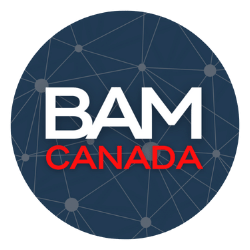Creating a Healing-Centered Workplace
Did you know we host free, public events to help you intentionally be missional in your business? We recently had the privilege to hear from Rachel Rose Nelson, Global Ambassador for Freedom Business Alliance (our Gold Partner!), on Creating Healing-Centered Workplaces as it applies to our biblical businesses. If you’d like to watch the event replay, click here.
One of the four bottom-lines we prioritize within Business As Mission (BAM) as a global movement is People. This pertains to the unique social approach to business we take as missional businesses. Dive into what we learned about how to care for those within our workplaces with the resource below!
It's sobering to learn that 50 million people are trapped in modern slavery, and it is estimated that 80% of the survivors who are rescued are then re-trafficked. That's why the work of Freedom Business Alliance is so important— they understand that by providing survivors with stable jobs and trauma care, survivors have the security they need to avoid being re-trafficked. With stable job opportunities comes holistic healing opportunities.
This was the key message from our July Round Table event, where we hosted Freedom Business Alliance’s (FBA) Rachel Rose Nelson. She shed a light on the weight of human trafficking and shared ways in which businesses can play a crucial role in aiding survivors, making a lasting positive impact on their lives.
The Freedom Business Perspective
During our time with Nelson, we learned that the FBA believes that businesses do not exist to only seek profit— their purpose is so much greater. Like BAM businesses, they are oriented to think beyond a single bottom line.
Yet, FBA is not a business itself but, instead, is a registered nonprofit that works with businesses.
FBA does the foundational work of gathering businesses that employ or support human trafficking survivors to provide them with safe, stable jobs to re-establish their lives and reduce the risk of them re-entering a life of trafficking. FBA then comes along these businesses, also known as Members or Freedom Businesses, and provides guidance, research and encouragement where it’s needed most.
As we learned from Nelson, much of this guidance is provided to the business owners as they understand how to lead those who have faced the trauma of human trafficking. Becoming trauma-informed is an important step for any business owner to take to be able to operate a business that can be used to promote healing in a real, tangible way.
Through FBA’s support, these Freedom Businesses are able to receive necessary training and have awareness raised for their business. With more businesses becoming members of the FBA and employing persons with lived experiences of human trafficking, areas where trafficking is more common can be economically, emotionally, and spiritually revitalized.
The Code of Excellence & Six Commitments
As a resource for our further understanding, Nelson introduced us to FBA’s Code of Excellence. The Code of Excellence was created in 2021 with the full participation of the FBA’s Freedom Business as a guide on how to create a purposeful business with a shared foundation of providing employment to survivors.
As part of this Code, the Six Commitments were established to define what every Freedom Business is upheld to in their work as a business. They are outlined and summarized as follows:
Mission to end human trafficking
This is the ultimate and guiding goal for the organization.
Governance, transparency, and accountability
The governing body of the organization is dedicated towards operating with honesty and is committed to putting in place and using processes for accountability within the business.
Good working conditions
The organization is committed to protecting its staff and providing safe and prosperous working conditions to all in every branch to promote growth and healing.
Fair pay
The organization is dedicated to paying a livable wage for each worker depending on their local context and commits to providing benefits and security to its workers.
Healing-centered workplace
The organization commits to orienting itself towards a trauma-conscious workplace and integrating this awareness into every facet of their business for survivors employed by the organization.
Concern for external stakeholders
The organization dedicates themselves to business practices that external stakeholders, investors and donators are aware of and show that the organization is keeping them in mind.
These Six Commitments can be adopted and upheld by any business, including yours, even if you’re not an official Freedom Business of FBA. Yet, if making these commitments seem daunting, the first step any business can take is to become trauma-informed.
Being aware of a survivor’s pain and knowing how to help them is of utmost importance. This comes from a dedication to continually learn and actively listen. Persons with lived experiences of human trafficking need a strong network of trauma-conscious people around them so that real healing may come from learning to trust and love again.
The workplace can be this strong and dedicated network for survivors, as Nelson explained. In that way, business can be a place of true healing.
Resources for Further Learning:
Download the Code of Excellence to learn more about the Six Commitments.
Learn more about FBA by visiting their website.
Support a Freedom Business by purchasing their products.
Interested in becoming a Freedom Business? Learn more here.
Want to stay connected to BAM Canada?
Sign up for our newsletter, here.
Check out our private Network.




